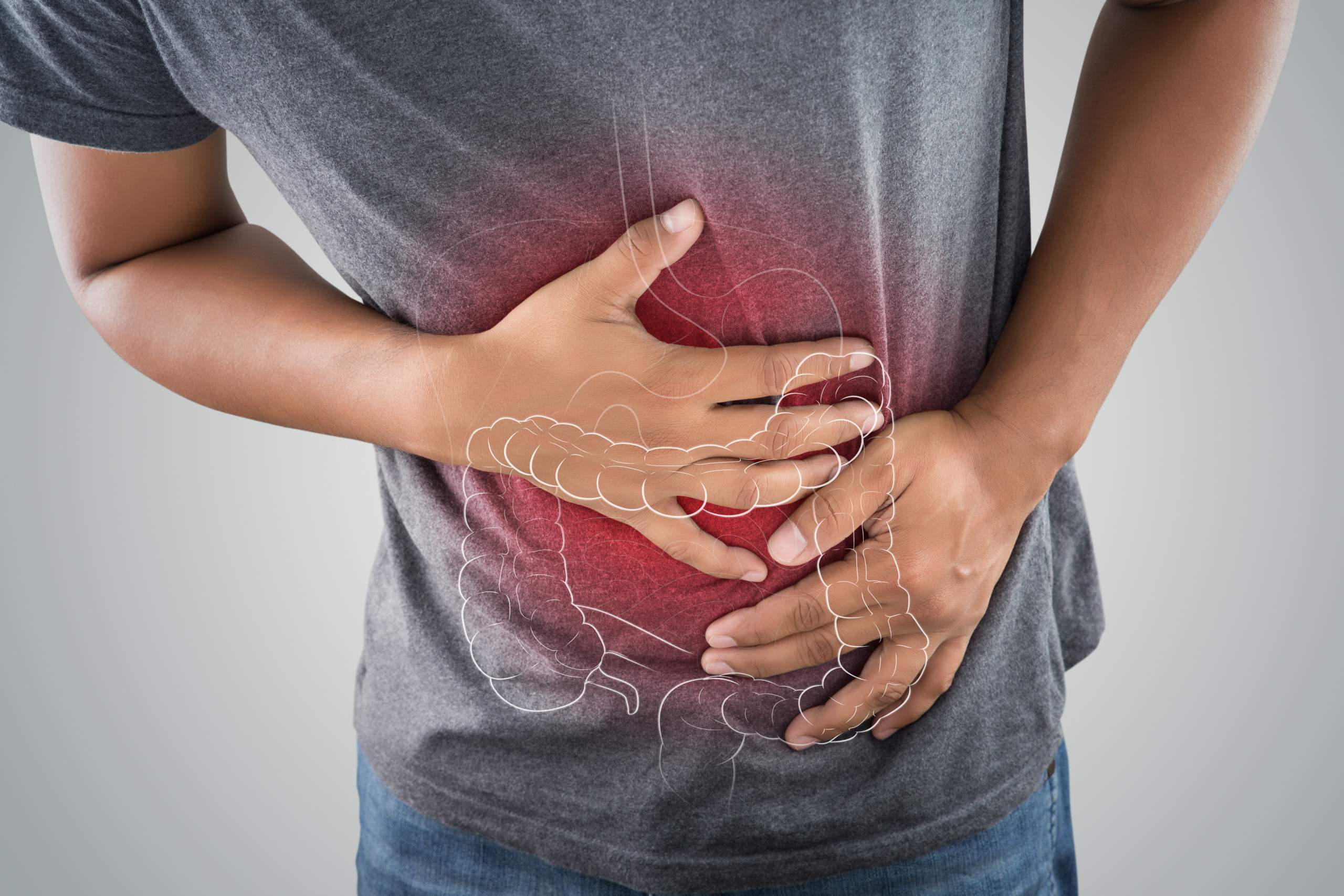Living with ulcerative colitis means dealing with chronic inflammation and ulcers in the colon, which can lead to painful, disruptive symptoms. These symptoms often affect daily life, but understanding the condition is the first step toward relief. By learning more about what ulcerative colitis looks like, its triggers, and available treatment options, you can take control of your health. With the right management plan, it’s possible to alleviate symptoms and improve your overall quality of life.
What is Ulcerative Colitis?
Ulcerative colitis is considered a chronic disease of the large intestine. Essentially, the lining of the colon becomes inflamed when the body’s immune system is overactive. As a result, ulcers form in the colon – and these small sores can create pus and mucous that cause an array of digestive woes. Ulcerative colitis (UC) is a condition that affects nearly one million Americans. And it’s common to develop UC at a young age, with most cases diagnosed between ages 15 and 30.
Medical experts aren’t sure of the exact cause of UC. It’s thought that a number of different factors can cause UC, including genetics and environmental factors.
However, there is research to suggest that ulcerative colitis may be triggered by either a virus or bacterial infection in the colon. When this happens, it can trigger the body’s immune system to react, which can then lead to UC.
Types of Ulcerative Colitis
There are a few different types of ulcerative colitis. The type is determined by the location of any ulcers and inflammation within the body.
You can be diagnosed with the following types of UC:
- Ulcerative proctitis, which is the mildest form of the condition and centered in the rectum.
- Proctosigmoiditis, which occurs when UC is located in the rectum and the lowest section of the colon.
- Left-sided colitis, which covers inflammation from the rectum up along the left side of the colon.
- Pancolitis, which affects the entire colon.
- Acute severe ulcerative colitis, which also affects the entire colon but is more rare.
Each specific type of UC can come with different symptoms and a different outlook for your overall health. They might even require different treatment options and coping strategies.
Signs and Symptoms
The signs and symptoms of ulcerative colitis are the very first sign that something might be wrong. That’s why it’s so important to listen to your body and note any changes that occur.
Many of the symptoms of UC can initially seem like other, less concerning conditions. But you shouldn’t brush off these symptoms, as leaving UC untreated can cause increasingly serious health problems and worsening symptoms.
The primary symptom to look for if you’re worried about ulcerative colitis is bloody diarrhea. However, the condition can also manifest in other ways, so you’ll also want to look for these common UC symptoms:
- Stomach cramping or pain.
- Sudden urges to poop.
- Feeling like you haven’t completely finished after using the bathroom.
- Unable to hold in stool.
- Pain with bowel movements.
- Blood in your stool.
- Sores on the skin.
- Unexplained weight loss.
- Lack of appetite.
- Fatigue.
- Fever.
- Dehydration.
Additionally, other health conditions can accompany ulcerative colitis. For example, canker sores and anemia can present problems of their own – but when they appear, they might also be connected to UC.
If you notice symptoms that might be a sign of UC, but they disappear after weeks or months, you should still talk with your doctor. Ulcerative colitis is a condition that can enter periods of remission. It can look like your body has healed, but the symptoms can return.
Treating Ulcerative Colitis
In most cases, ulcerative colitis is a lifelong condition. It may flare up or enter remission, but it’s something that doesn’t permanently disappear. UC is a chronic condition, so it can affect your life and your health for years to come.
However, the condition varies widely. Approximately 10 percent of people who live with UC experience serious complications. For others, the condition flares up and then enters remission – and symptoms never appear again. Most cases fall somewhere in between these two ends of the spectrum.
This means that managing and treating UC is typically a lifelong task. There are two common ways doctors treat UC: preventing future flare-ups and working to heal the colon. And that means a combination of different treatments may be needed to see success.
Common UC treatments include:
- Dietary Changes: Certain foods can make UC symptoms worse, or aggravate ulcers. Changing your diet may give your intestine and colon a chance to heal.
- Medicine: Different types of medication can fight infections, reduce inflammation, and soothe an overactive immune system response. These include antibiotics, corticosteroids, and biologics.
- Surgery: If other treatments aren’t effective, surgery may be considered. Surgery might be done to remove the colon or the colon and the rectum, which can stop symptoms.
Your doctor will be able to recommend treatment options that can help your specific type of ulcerative colitis. When UC is managed, you may still experience flares and periods of remission, where symptoms disappear.
Learn More About Ulcerative Colitis
If you’re concerned about UC, it’s important to talk with your doctor. You’ll need screenings and testing in order to determine if UC is causing your symptoms or health issues. But once you have answers, you and your doctor can begin working to manage symptoms and get you in better health overall.
